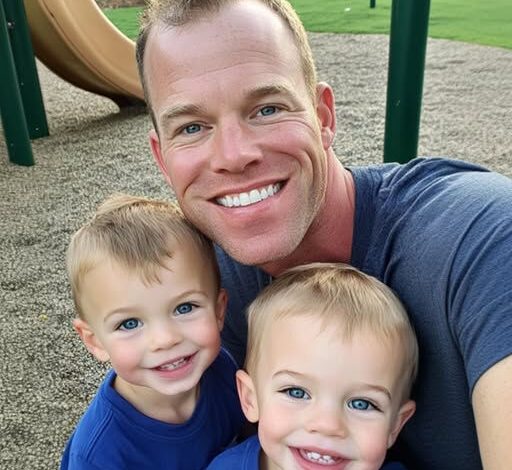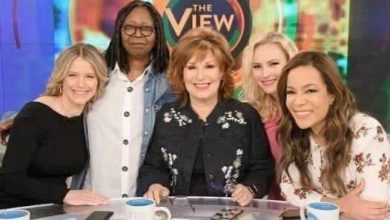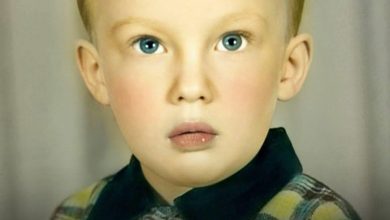MY WIFE LEFT ME AND OUR CHILDREN AFTER I LOST MY JOB — TWO YEARS LATER, I ACCIDENTALLY MET HER IN A CAFÉ, AND SHE WAS IN TEARS


When my wife, Anna, walked out the door with nothing but her suitcase and a cold “I can’t do this anymore,” I was left clutching our 4-year-old twins in one hand and my shattered dignity in the other. Losing my job had hit me hard, but her departure? That was the final blow. She didn’t look back, leaving me to figure out life for the three of us.
The first year was hell. Unemployment checks barely covered rent, and I juggled late-night gigs to keep the lights on. My kids were the only reason I kept going — their hugs and “We love you, Daddy” were my lifeline.
By the second year, things changed. I landed a solid IT job, moved into a cozy apartment, and even started hitting the gym. We weren’t just surviving; we were thriving. Slowly, I rebuilt our life.
Then, two years to the day after Anna left, I saw her again. I was at a café, working on my laptop, when I spotted her in the corner. Tears were streaming down her face.
For a moment, I froze. This was the woman who abandoned us at our lowest. She sensed me staring, looked up, and recognition flickered.
I approached her, stunned, and asked, “ANNA, WHAT HAPPENED?“
She looked older. Not in a cruel way, just… worn out. Her once perfectly styled hair was now tied up messily. No makeup. Her hands trembled as she held her coffee cup.
She wiped her eyes quickly, like she didn’t want me to see her vulnerable. “I didn’t think I’d ever run into you,” she said softly.
I sat down without asking. “Well, here we are. You left us. And now you’re here, crying in a café. So I’ll ask again—what happened?”
She looked down at her coffee like it had the answer.
“I made a mistake,” she finally whispered. “I thought I was drowning, and instead of swimming with you, I ran.”
I felt a rush of anger. “You didn’t just run. You vanished. You didn’t call, didn’t check in. The twins cried for you every night for six months.”
Her eyes filled again. “I know. I have no excuse for what I did. I was scared and selfish.”
I almost walked away. But something kept me sitting there. Maybe I needed closure. Maybe I needed to understand.
“Where did you go?” I asked.
“I went to Denver. Stayed with a friend. I got a job at a bookstore and tried to pretend I didn’t miss you or the kids. But every birthday I missed, every laugh I didn’t hear… it haunted me. And then last month—” She paused. “I got sick. Not dying-sick, just serious. And I had no one. No family. No friends left. I realized I’d walked away from everything that ever mattered.”
I sat there, hands clenched, fighting the urge to yell.
“I never cheated,” she added quickly, like it mattered now. “It wasn’t about someone else. It was about me not being strong enough to stay.”
I didn’t say anything for a long time. She just let the silence hang.
Finally, I said, “The twins are okay. They’re happy. They laugh a lot. They’re strong. And I’m okay too.”
She nodded, tears falling again. “Do they hate me?”
I shook my head. “They don’t talk about you much. I think… they buried it. But no, they don’t hate you. They just don’t know you anymore.”
That broke her. She sobbed right there in front of me, shoulders shaking, people starting to glance over. I almost reached out, but I stopped myself.
I wasn’t there to comfort her. That ship had sailed.
A week later, she reached out again. Asked if she could write them a letter. I said I’d think about it.
I didn’t trust her. Not fully. But I could see that she was hurting and maybe finally realizing the weight of what she’d done.
After a lot of thought, I told her she could meet them—but only in a public place, and only if they wanted to.
When I told the twins, they didn’t say much at first. My daughter, Mira, said, “Why does she want to see us now?” My son, Jonas, just shrugged.
I didn’t push them. I told them it was their choice.
Three weeks later, we met her at a park. She brought small gifts, nothing extravagant. Just books and a homemade scrapbook of pictures she’d kept from when they were babies.
They were quiet at first. Mira stayed glued to my side. Jonas asked her a few questions, like “Where do you live?” and “Do you have a dog?”
But eventually, Mira walked over and asked, “Why did you leave?”
Anna looked her in the eye and said, “Because I made a terrible choice. But not a day went by that I didn’t regret it.”
It wasn’t a movie moment. They didn’t cry and hug. But they nodded. And they listened.
And that was something.
Over time, Anna became more of a presence. She still lived in Denver, but she’d fly in once a month. Never pushed. Never guilt-tripped. She just showed up—consistently.
Two years later, we’re not together. But we’re at peace.
The kids know her now. They know she made a mistake, but they also know people can come back from the worst versions of themselves—if they’re willing to do the hard work.
Sometimes, people break. And sometimes, they try to rebuild. Not every relationship gets a perfect ending—but some get a second chance at honesty, healing, and peace.
If this story moved you, please like and share. You never know who needs to hear that broken doesn’t mean finished.



